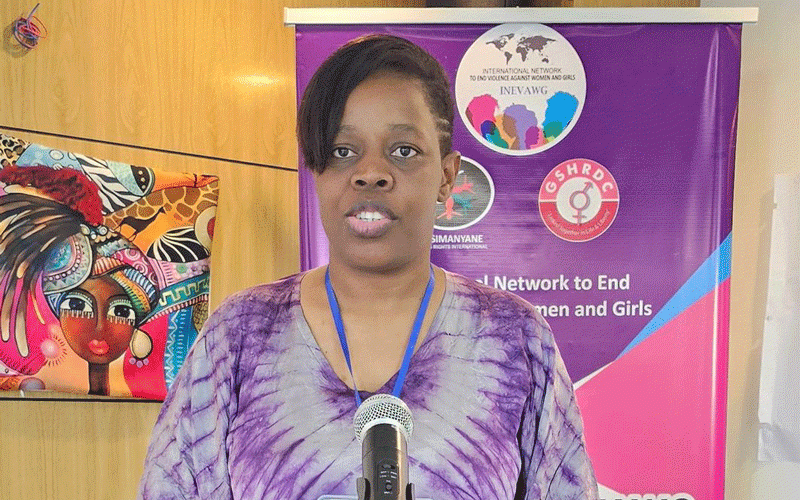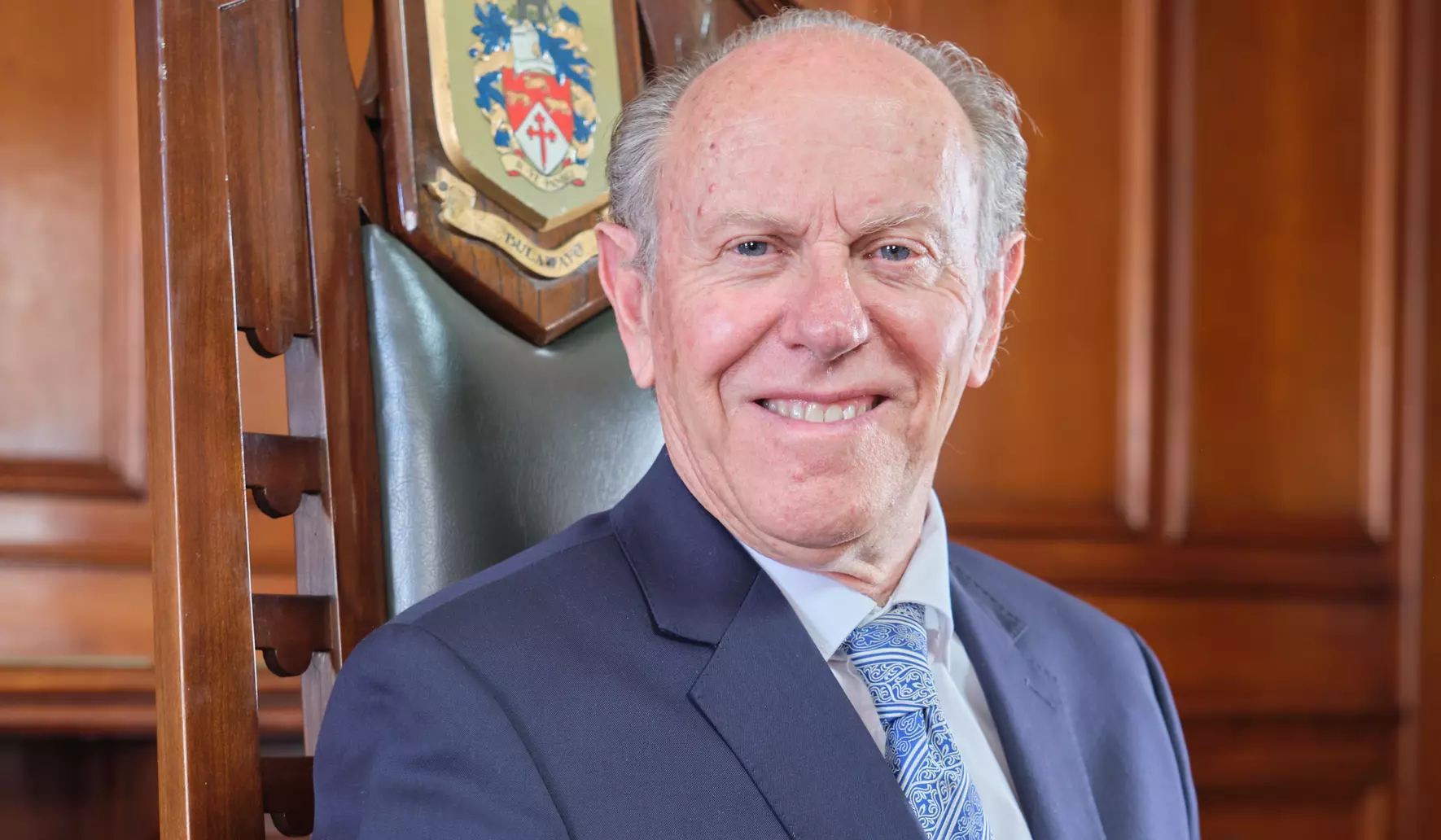
Leading women's emancipation proponent and Empowered Women founder and director Sibonokuhle Buhlungu who was recently in Ghana, has called for cross sector alliances to end gender-based violence (GBV).
Buhlungu was in the West African country attending a high-level training aimed at ending violence against women
“Cross-sector alliances between governments, private industry, non-governmental organisations and community leaders are vital to ensure a more gender-just, stable and prosperous economic environment for all in both good times and periods of turmoil or transition,” she said.
“GBV is a complex societal issue with interconnected roots in economic instability, cultural norms, legal systems and power imbalances between the sexes.
“It, therefore, requires a holistic, multi-pronged approach to truly make an impact. No single organisation or sector alone can solve this entrenched problem — it demands coordination and cooperation across all levels of society.”
Buhlungu recently received a top award from the Zimbabwe CEO’s Network for her exploits in women empowerment programming.
The Ghana meeting was organised by Development Alternatives with Women for a New Era (DAWN) and was running under the theme Political economy of conflict, debt and justice and its impact on gender-based violence.
Participants were drawn from various African, Asian and European countries.
- Insuring against disaster: The politics of protection
- Residents finger ZETDC employees in cables theft
- New perspectives: Building capacity of agricultural players in Zim
- SA insurer targets Zim after US$2.4 million payouts
Keep Reading
Buhlungu said cross sector alliances could leverage women’s comparative strengths for maximum effect.
“Government partnerships with NGOs and other development organisations like Empowered Women ensures policies and programmes are designed hand-in-hand with those most impacted,” she said.
“When community networks align with companies committed to ethical employment, it expands prevention through education and employment opportunities for at-risk groups.
“Joint initiatives help in multiplying each partner's capacity and accelerating progress through pooled talent and funding.
“Strong cross-sector alliances also foster shared responsibility and accountability.
“No one group blames others for lack of action - together we mobilise citizens, change social norms and hold all accountable.
“With a united front, complex problems can be simplified through streamlined communication and coordination of complementary roles.”
Buhlungu said she was happy to have joined participants from countries like Ghana, South Africa, Uganda, Swaziland, Ethiopia, Nigeria, Zimbabwe, Palestine, Australia, Sri Lanka and Tanzania at the high-level GBV training programme by DAWN and hoped the programme will result in stronger alliances towards ending GBV.
“GBV remains a threat to our women emancipation efforts and I am grateful to DAWN, the event organizers as well as the various facilitators and gender experts for the important insights on how to end GBV,” Buhlungu said.
“It is true that economic hardships like poverty, unemployment and lack of opportunity can increase stress and tension within households and communities.
“This can exacerbate the risk of domestic violence and I am happy that as Empowered Women we are doing the best we can to empower women economically.”
“With fewer resources during times of crisis like most African countries are experiencing, essential social services that support victims of abuse may be underfunded.
“This can make it more difficult for women to access support networks, counseling and safe homes among other necessities hence the call for concerted efforts in the fight against GBV.”
Buhlungu, who has worked with both private and public sector in promoting women emancipation, said the Ghana meeting was a good eye-opener as she continues working with like-minded progressives in empowering women.
“The Ghana programme was a welcome initiative and I am happy that the ideas exchange and experience sharing we engaged in helped us appreciate the challenges better,” she said.
“Ending GBV is a reality but it calls for all the players to go the extra mile given the odds staked against us.
“Periods of significant social change or upheaval may erode positive cultural values of mutual care, respect and non-violence within societies over time.
“Community programmes are needed to promote healthy relationships and prevent the normalization of aggression.”
With Empowered Women running a number of empowerment programmes that have seen women buying cars, housing stands, business equipment and getting educational support, Buhlungu said women financial empowerment is central to the fight against GBV.
“Empowering women financially through skills training, job creation, socioeconomic rights and control over household finances can provide abused women with independence and options to leave violent situations,” she said.
“As a grassroots women organisation, we are working to tackle the interconnected root causes of gender inequality, poverty and violence through holistic, community-led development models.
“We strongly believe that our success in this quest could inspire wider replication as seen by the number of women led organisations that are also implementing a similar model in Zimbabwe.”
“A focus on early education programmes that cultivate empathy, respect for diversity, and emotional intelligence from a young age could help lay the foundation for healthier and less violent societies over the long run.”
The multi-award-winning women emancipation champion, who has been celebrated by reputable organisations like World Life Changers, said there is also need for legislation that protect women’s rights even in conflict zones.
“Lack of access to justice systems and enforcement of laws or conventions protecting women's rights contributes to a culture of impunity for gender crimes during times of upheaval and breakdown of governance,” Buhlungu said.
“Peacebuilding and post-conflict recovery efforts must prioritise empowering women legally and politically.”
“International organisations, governments and financial institutions must actively weigh social and humanitarian impacts of economic policies ensure policy coherence across sectors, and place gender equality and integrity at the heart of decision making.”
Empowered Women has over the years forged strategic partnerships with other progressive organisations and players among them the Ministry of Women Affairs, Community, Small and Enterprises Development, Small to Medium Enterprises Development Cooperation as well as international online education university Unicaf.
Other lead agencies like UN Women, the donor community and embassies have also showed their support for Empowered Women and opening their doors for collaboration towards wholesome women empowerment initiatives in Zimbabwe.










